Our governance committee consists of leadership from across our network partner institutions. These members were pivotal in establishing the SAN and continue to provide guidance and feedback toward strategic growth and operation.
Our governance facilitates open communication between leadership within our network, ensuring discussions involve the voices of all partners. These members also helped to establish administrative workflows and communication pipelines that streamline specimen request and acquisition within our network. These leaders have also been key drivers in the development of standardized material and data transfer agreements that ease and accelerate our specimen transfer process.
We thank our governance committee members and partner organizations for their founding guidance, involvement, and continued support.
BC Cancer/University of British Columbia
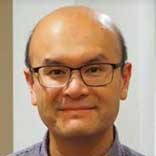
Samuel Leung, MS
Mr. Sam Leung is a Data Manager at OVCARE and the Database and Information Technology Manager at the Genetic Pathology Evaluation Centre (GPEC). OVCARE’s mission is to enhance ovarian cancer research in British Columbia with the goal of reducing incidence and improving health outcomes for women facing this disease. GPEC is a collaborative group with the goal of improving the management of cancer patients through the rapid clinical validation of prognostic and predictive cancer biomarkers. Sam’s areas of interest include biobanking software and data management, digital pathology, and statistical analysis. Mr. Leung earned a Master of Science from the University of Victoria, Canada, majoring in Computer Science.
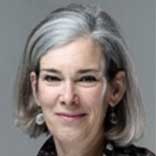
Sheila O'Donoghue
Sheila O'Donoghue is the Leader of the Biobanking and Biospecimen Research Services (BBRS) unit at BC Cancer and is also responsible for the national Canadian Tissue Repository Network (CTRNet) biobank certification and education programs. She is a member of the BC Cancer Research Ethics Board. Prior to her current roles, she was the project manager for the BC BioLibrary and spent fifteen plus years managing national and local clinical trials. She is the past Chair of the Education and Training Committee of the International Biobanking Society (ISBER).
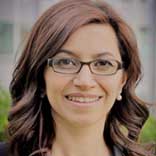
Aline Talhouk, PhD
Dr. Talhouk is an assistant professor in the department of Obstetrics & Gynecology in the Faculty of Medicine at the University of British Columbia. She is also the director of data science and informatics at OVCARE, BC’s ovarian and gynecological cancer research program. She completed her PhD in Statistics at the University of British Columbia in 2013 with a focus on computational statistics and machine learning. Since then, she has been working on developing and implementing predictive models to improve patient care in women’s health and oncology. Her research focus also includes the ethics of data sharing and privacy in the era of digital health and AI modeling.
Benaroya Research Institute
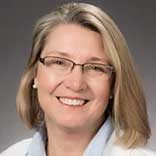
Jane Buckner, MD
Dr. Jane Buckner’s interdisciplinary research combines genetics, immunology and clinical medicine to advance our understanding of the causes of autoimmune diseases including type 1 diabetes, multiple sclerosis, rheumatoid arthritis, systemic lupus erythematosus and relapsing polychondritis. Her research goal is to expand our understanding of each disease by identifying the common features that cause them. Her research group has approached this question through the study of genetic risk variants associated with autoimmunity, analysis of regulatory and effector adaptive responses in samples from patients with autoimmune disease and targeted analysis of autoreactive CD4 T cells from patients with autoimmunity. Dr. Buckner has published more than 100 peer-reviewed papers, and is currently funded by the National Institutes of Health and the Leona M. and Harry B. Helmsley Charitable Trust. Dr. Buckner received her bachelor’s degree in chemistry from Carleton College, and her medical degree from Johns Hopkins School of Medicine. She has been honored by the American College of Rheumatology, having received both their Senior Rheumatology Scholar award, and their Arthritis Investigator Award.
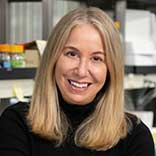
Meg Mandelson, PhD
Dr. Mandelson is the Pancreatic Cancer Research Director at Benaroya Research Institute at Virginia Mason Franciscan Health. Dr. Mandelson coordinates efforts with the Pancreaticobiliary Cancer Center of Excellence at Virginia Mason Franciscan Health (VMFH), other VMFH clinicians, and scientists across the country to improve the detection and treatment of pancreatic cancer in many ways.
Fred Hutch Cancer Center
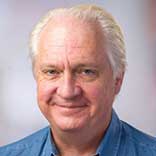
Eric Holland, MD, PhD
Dr. Eric Holland is the Senior Vice President and Director of the Human Biology Division at Fred Hutch and the Director of Seattle Translational Tumor Research. Dr. Holland is a world-renowned physician-scientist who combines compassionate patient care with exacting laboratory research to discover more effective treatments for brain tumors. As a neurosurgeon, he specializes in caring for patients with glioblastomas, the most common malignant brain tumors in adults. Dr. Holland is committed to finding targeted treatment options for this aggressive cancer, which currently has few effective therapies. He continues to foster productive collaborations to spark discovery and advance precision oncology. Dr. Holland believes Oncoscape has the potential to transform patient treatment. Using this tool, researchers can now begin to group tumors by their genetic profiles to help physicians select therapies likely to work best for each patient.
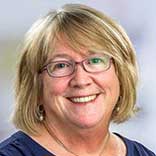
Kathi Malone, PhD
Dr. Kathi Malone is a Professor in the Public Health Sciences Division and Head of the Epidemiology Program at Fred Hutch. Dr. Malone studies the causes of breast cancer and factors that influence how a patient will fare after treatment. Dr. Malone has conducted extensive research on BRCA1/2 genetic mutations. She led the first population-based study of the prevalence and predictors of BRCA1/2 mutations in young women and subsequent investigations of understudied groups including African Americans and women with contralateral breast cancer. Identifying the multifactorial determinants of adverse outcomes after breast cancer in order to develop clinically relevant prediction and prevention strategies is a current focus. Using large-scale population-based designs that include interviews, medical record reviews, and tumor collection/molecular analyses, her group seeks to characterize the personal, lifestyle, clinical, and tumor-based determinants of breast cancer recurrence and second primary cancers.
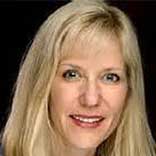
Traci Rieckmann, PhD
Dr. Traci Rieckmann is the SAN External Partnerships Liaison, based at Fred Hutch. Traci is a visionary COO, executive leader, and research scientist with PhD credentials and a demonstrated track record of leadership within Life Science, Biotechnology, Higher Education & Medical Research Institutions. Her background includes extensive experience partnering with executive and clinical leaders to foster operational excellence, galvanize innovation, increase funding, and enhance market share and revenue growth. Dr. Rieckmann’s areas of focus include the delivery of integrated, evidence-based medical services and behavioral health care — as well as the coordination of biobehavioral health, psychiatry studies, and health policy clinical trials. She has a unique multi-disciplinary background that spans private-sector business leadership, academic positions, clinical practice expertise, and principal investigator/research roles with top organizations such as Fred Hutchinson Cancer Center and Oregon Health & Science University. Dr. Rieckmann received her Doctor of Philosophy in Counseling Psychology from the University of Utah in 2001, and her Master of Science in Health Promotion & Education from the University of Utah in 1994.
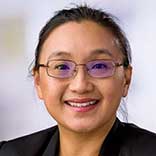
Cecilia Yeung, MD
Dr. Cecilia Yeung is an Associate Professor in the Clinical Research Division at Fred Hutch, Associate Professor of Pathology at the University of Washington, and a Pathologist at the Seattle Cancer Care Alliance Clinical Pathology Lab. Dr. Yeung studies blood diseases and specializes in the molecular traits of myelodysplastic syndromes. Her team uses whole genome interrogation methods such as genomic array and massive parallel sequencing to tease out genes that may affect patient prognosis or serve as potential targets for therapy. Dr. Yeung also diagnoses diseases that can arise after transplant. She has a particular interest in graft-vs.-host disease and infectious diseases seen in the lungs of blood cell transplant patients. As a researcher, Dr. Yeung hopes to discover useful biomarkers which may aid in diagnosis and prognosis and guide future therapies. She earned her M.D. from Penn State. As a part of the UW's Pathology faculty, she heads efforts to expand molecular pathology education. She is active in the Molecular Genetics Fellowship and chair of the Clinical Competency Committee.
Legacy Research Institute
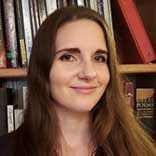
Danielle M. Osborne, PhD
Dr. Osborne earned her PhD in Behavioral Neuroscience from the University at Albany focusing on stress interactions with insulin signaling in the dorsal hippocampus with an additional emphasis on glucose metabolism in the hippocampus. She took a post-doctoral position at Legacy Research Institute to work on sex differences in neuropsychiatric disorders. She has since risen within LRI to become a Staff Scientist, and with intramural support she has developed an independent line of research into using obesity models to better understand the sex differences and etiology of Alzheimer’s Disease.
Oregon Health & Science University
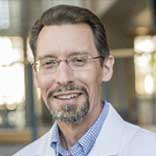
Christopher Corless, MD, PhD
Dr. Christopher Corless is the Chief Medical Officer (CMO) for Knight Diagnostic Laboratories housed at the Oregon Health & Science University. Chris has proven expertise in molecular pathology, particularly in oncology-related applications, including test development and validation. As the CMO for an academically-based molecular diagnostics laboratory, he has experience in laboratory management and have served as a consultant to a number of companies, including Novartis, Pfizer, Roche/Genentech, Roche/Ventana, Asuragen, Cepheid, Leica Biosystems, and ThermoFisher. Dr. Corless has over 20 years of experience as a staff pathologist in academic practice, with a particular interest in GI and GU pathology. His specialties include next-generation sequencing, real-time quantitative PCR, immunohistochemistry, pyrosequencing, high resolution melting curve analyses, and working with nucleic acids from FFPE tissue.
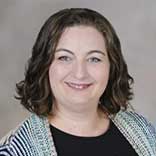
Danielle Galipeau
Ms. Danielle Galipeau has served as Operations Supervisor for the OHSU Knight BioLibrary since 2018, overseeing the acquisition, storage, and distribution of biospecimens in support of academic and commercial research enterprises. She started her career at OHSU in 2007 as a research assistant and worked in various labs on campus before joining the BioLibrary in 2014. Prior to working at OHSU, she worked at The American Red Cross National Testing Lab as a Laboratory Assistant and at Alpha Therapeutics Corporation as an Operations Manager. She brings close to 20 years’ experience in management, research, biobanking and quality control. Ms. Galipeau earned a Bachelor of Science from University of Oregon, majoring in Biology.
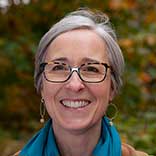
Laura Erker, PhD
Dr. Erker earned her PhD in biomedical science from the University of California, San Diego in 2004. She has nine years of clinical trial experience and fourteen years of basic research experience. Before this position, she served as executive director of the Casey Eye Institute’s Reading Center at OHSU, primarily responsible for negotiating clinical trial-related budgets and related service contracts with industry sponsors. She holds an appointment of research assistant professor of ophthalmology, OHSU School of Medicine.
Pacific Northwest National Laboratory
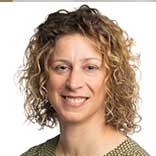
Sara Gosline, PhD
Sara Gosline received a BA in computer science from Columbia University and spent two years working in the software field before returning to graduate school full-time. She received her master’s degree and PhD in computer science from McGill University, with a specialty in bioinformatics. Then, she moved to the Massachusetts Institute of Technology where she worked as a postdoctoral researcher in the Department of Biological Engineering with Ernest Fraenkel and Phillip Sharp.
Since completing her training, she worked at Sage Bionetworks, a non-profit that focuses on accelerating the pace of biomedical research through enabling data sharing and collaboration. She focused on supporting scientific discoveries in rare diseases. Gosline has since become a research scientist at PNNL where she continues her research on rare diseases, as well as working with other large molecular datasets, specifically trying to employ novel algorithms in cancer and other diseases.
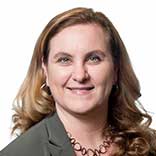
Bobbie-Jo Webb-Robertson, PhD
Bobbie-Jo Webb-Robertson has 20 years of experience in the statistics and data science fields. She currently serves as the chief scientist of computational biology in the Biological Sciences Division at PNNL. Her research portfolio is largely related to the biomedical field and primarily focuses on the development and application of advanced statistical and machine learning methods to address challenges associated with large and complex omics data, as well as integration across multiple data sources. She is a highly accomplished publisher with an h-index of 30 and more than 100 publications.
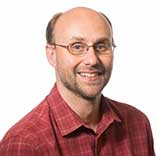
Joshua Adkins, PhD
Joshua Adkins is a biochemist whose research centers primarily on applying cutting-edge mass spectrometry capabilities to nationally important biological research. Josh is an Associate Division Director in the Biological Sciences Division, leading the Integrative Omics group. He has 20 years of experience at PNNL where his research has centered on the comprehensive characterization of proteins through space (associated proteins, structural determinants and localization) and time (before and after treatment, cell cycle, day-night cycle, and evolutionary changes) to better understand biological systems. Josh has used different biological models to highlight the capabilities of PNNL, these models have ranged from host-pathogen interactions to human exercise/physical activity to environmental microbes. Currently, Josh is leading an NIH Common Fund Project within the Molecular Transducers of Physical Activity Consortium (MoTrPAC) and the PI of a National Heart, Lung, and Blood Institute - Lung Map Research Center. He has previously led among other projects a Center for Systems Biology of EnteroPathogens and a Protein Structure Initiative Biology Center. In these roles, he works with leads talented and multidisciplinary teams comprised of scientists from PNNL, universities, and other research organizations.
Provincial Health Services Authority
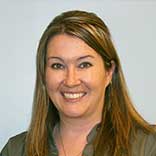
Lise Matzke MSc, CCRP, MBA
Lise Matzke has spent the past 15 years deeply involved in both the technical and operational levels of biobanking. Translating her knowledge to help others, Lise has focused on helping research groups/institutions establish and operate new biobanks, innovate change strategies and develop novel tools for researchers to use in their everyday operations. Currently Lise works with the Provincial laboratory system to develop and deliver innovative ideas that improve patient care. Lise also teaches biospecimen research at the University of British Columbia (UBC) in the Department of Pathology and Laboratory Medicine.
Swedish Cancer Institute
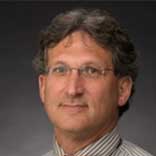
Charles Drescher, MD
Dr. Charles Drescher is a Gynecologic Oncologist at Swedish Cancer Institute and a Member of the Public Health Sciences Division at Fred Hutch. He is a practicing gynecologic oncologist and surgeon who researches gynecological cancers through Fred Hutch’s Translational and Outcomes Research Group. He has extensive experience in collecting and processing tissues and blood specimens from ovarian cancer patients, which are banked for use in research studies. In addition, he has led efforts to discover molecular targets for ovarian cancer prognosis and therapy. As an expert in gynecological oncology, Dr. Drescher is actively involved in many ovarian cancer research organizations, including the Gynecological Oncology Group, the Puget Sound Oncology Consortium and the Pacific Ovarian Cancer Research Consortium. He is also the former medical director of the Marsha Rivkin Center for Ovarian Cancer Research at Swedish Medical Center.
UW Medicine
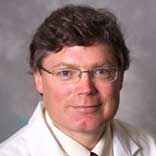
Kelly Smith, MD, PhD
Dr. Kelly Smith is a Professor in the Department of Pathology and Director of NW BioTrust/BioSpecimen, which is based in the Department of Pathology at the University of Washington, and a collaboration between UW Medicine, Fred Hutch, and Seattle Cancer Care Alliance. Dr. Smith is a board-certified anatomic pathologist with subspecialty expertise in renal, cardiovascular and autopsy pathology. Dr. Smith has been conducting research in immunology, both adaptive and innate immunity, for over twenty years, with emphasis on mucosal innate immunity and the factors that regulate colonization, inflammation and protective immune responses. More recently, he has been expanding his research interests and leveraging his expertise as a pathologist and basic scientist to use advanced technologies to provide novel insight into human disease. He has close collaborations with proteomics and genomics laboratories to interrogate human tissues using state of the art technologies. His lab’s current efforts are focused on understanding disease processes that he encounters on a daily basis as an anatomic pathologist, with a primary focus on medical kidney diseases. In addition, in his current position as director of Northwest BioSpecimen (NWB), he oversees the procurement and distribution of human biospecimens to the Seattle research community, which supports a vast array of basic science, translational studies and clinical trials for our researchers and patient populations. He is committed to increasing access to human biospecimens, which are essential resources needed to develop new models of human disease, and better means to diagnose and treat human diseases. He earned his medical degree and doctorate from the University of Iowa in 1996, and is a member of several organizations, including the United States and Canadian Academy of Pathology, the Renal Pathology Society and the American Society of Nephrologists.
Washington State University

Sterling McPherson, PhD
Dr. McPherson is a Professor and Interim Vice Dean for Research. He is also the Director of the Program of Excellence in Addictions Research (PEAR) at the Washington State University Elson S. Floyd College of Medicine.
Within PEAR, he is the Head and Principal Investigator of the Analytics and Psychopharmacology Laboratory (APPL). He has secured more than $20 million in grants and contracts as PI and another $35 million as a Co-I. Most of this funding has come from NIH (11 different institutes/centers) and 16 other agencies. He is involved in multiple research projects ranging from basic human toxicology to spatial epidemiology to the health economics of new therapeutics. He has led several therpaeutic development focused projects (e.g., Phase I/II trials) and has significant clinical research experience having successfully recruited participants with alcohol, opioid, stimulant, and tobacco use disorders. Currently, his primary area of foci is on the leveraging contingency management in combination with putative pharmacotherapies for alcohol, alcohol and tobacco combined, and methamphetamine and opioid use combined.
Additionally, he is also working with three companies on advancing technology platform to improve buprenorphine/naloxone adherence, and naloxone carriage rates and use.